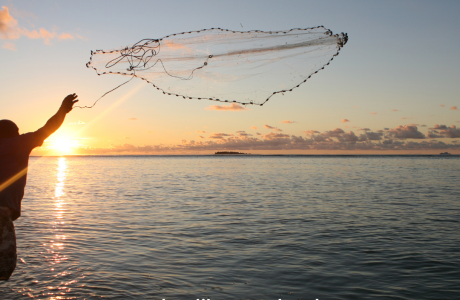On March 17, 2008, the Supreme Court granted certiorari to decide whether a person who was compelled, against his will, to assist or take part in persecution is barred from asylum under the "persecutor bar" at Immigration and Nationality Act (INA) ? 208(b)(2)(A)(i). Section 208 of the Immigration and Nationality Act, 8 U.S.C. ? 1158 provides that the Secretary of Homeland Security or the Attorney General may, in his discretion, grant asylum to an alien who demonstrates that he is a refugee within the meaning of the Act. The statutory definition of "refugee" excludes "any person who ordered, incited, assisted, or otherwise participated in the persecution of any person on account of race, religion, nationality, membership in a particular social group, or political opinion." 8 U.S.C. ? 1101(a)(42)(B). If the evidence indicates that an asylum applicant persecuted any person, he bears the burden of proving that he did not.
Mr. Negusie, caught up in the civil war between Eritrea and Ethiopia, was drafted and forced to be a guard in an Eritrean prison, where he was ordered to mistreat prisoners. He eventually escaped, hiding in a shipping container on a ship bound for the United States. Despite a finding that he was likely to be tortured if returned to Eritrea, he was denied asylum because of his activities in the prison.
In rejecting Negusie's immigration appeal, the United States Court of Appeals for the Fifth Circuit, in an unpublished decision, determined that Negusie's intent while being compelled to assist authorities was irrelevant. Rather, the Court's focus was "on whether particular conduct can be considered assisting in the persecution of civilians." Fedorenko v. U.S., 449 U.S. 490, 512 n. 34 (1981). The case opinion is Negusie v. Gonzales, 231 Fed. Appx. 325, No. 06-60193 (5th Cir. May 15, 2007) (per curiam), available at: http://www.ca5.uscourts.gov/opinions%5Cunpub%5C06/06-60193.0.wpd.pdf
The Yale Law School Supreme Court Clinic was retained to prepare a petition for certiorari and argued that the statutory history and plain language of the INA's persecutor exception demonstrate the Congress never intended it to apply to asylum-seekers who have been compelled under threat of torture and death to participate in persecution. See: http://www.yale.edu/supremecourtclinic/pages/cases.html
The DOJ's response is on file at: https://www.justice.gov/osg/briefs/2007/0responses/2007-0499.resp.html
The case will be argued during the October 2008 term.

